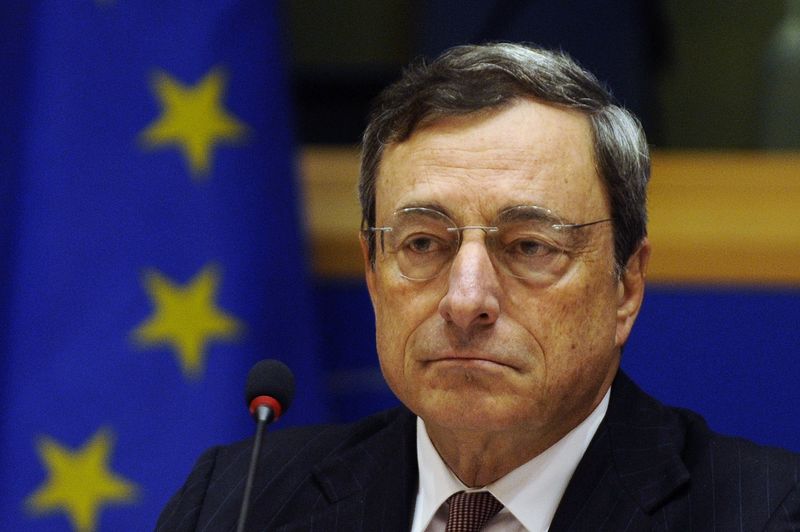Investing.com – In his first monetary policy press conference since the U.K. decided to vote to leave the European Union (EU), known as a Brexit, European Central Bank (ECB) Mario Draghi left the door open on Thursday for the euro zone monetary authority to take further action at their next meeting in September as they evaluate the Brexit impact on the region’s economy.
The ECB made no changes to monetary policy on Thursday but repeated that it expects rates to “remain at present or lower levels for an extended period of time , and well past the horizon of our net asset purchases.”
Draghi noted that, in the aftermath of the U.K. referendum, financial markets have reacted to the uncertainty and volatility with “encouraging resilience”.
In a similar stance shown by the Bank of England that also held steady on policy last week, Draghi explained the ECB’s current lack of action was due to the need to gather information on the impact.
“Over the coming months, when we have more information, including new staff projections, we will be in a better position to reassess the underlying macroeconomic conditions, the most likely paths of inflation and growth, and the distribution of risks around those paths,” he stated.
Draghi noted that the ECB continued to expect the economic recovery to proceed at a moderate pace, but admitted that there were still headwinds.
Among them, he mentioned not only the Brexit but other geopolitical uncertainties, subdued growth prospects in emerging markets, the necessary balance sheet adjustments in a number of sectors and a sluggish pace of implementation of structural reforms.
“Against this background, the risks to the euro area growth outlook remain tilted to the downside,” he said.
On price stability, Draghi repeated that inflation was likely to remain very low in the next few months before starting to pick up later in 2016 with a further increase in 2017 and 2018.
As usual, Draghi also called on governments to “contribute much more decisively, both at the national and at the European level.”
“The implementation of structural reforms needs to be substantially stepped up to reduce structural unemployment and boost potential output growth in the euro area,” Draghi insisted.
